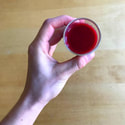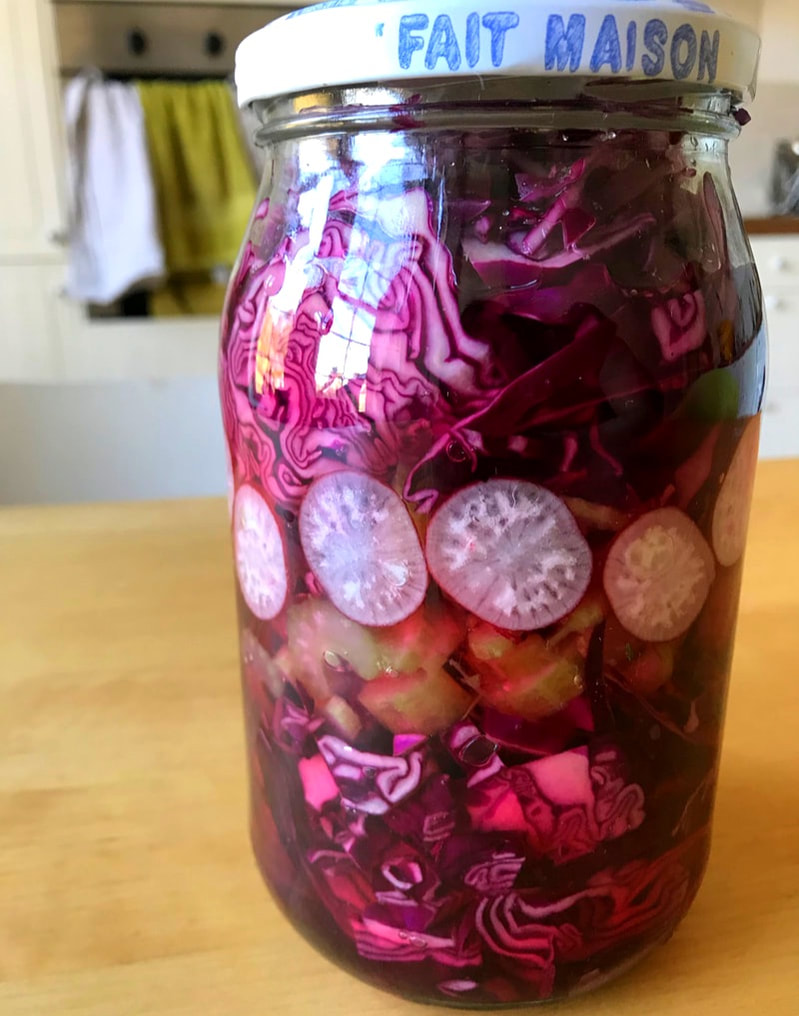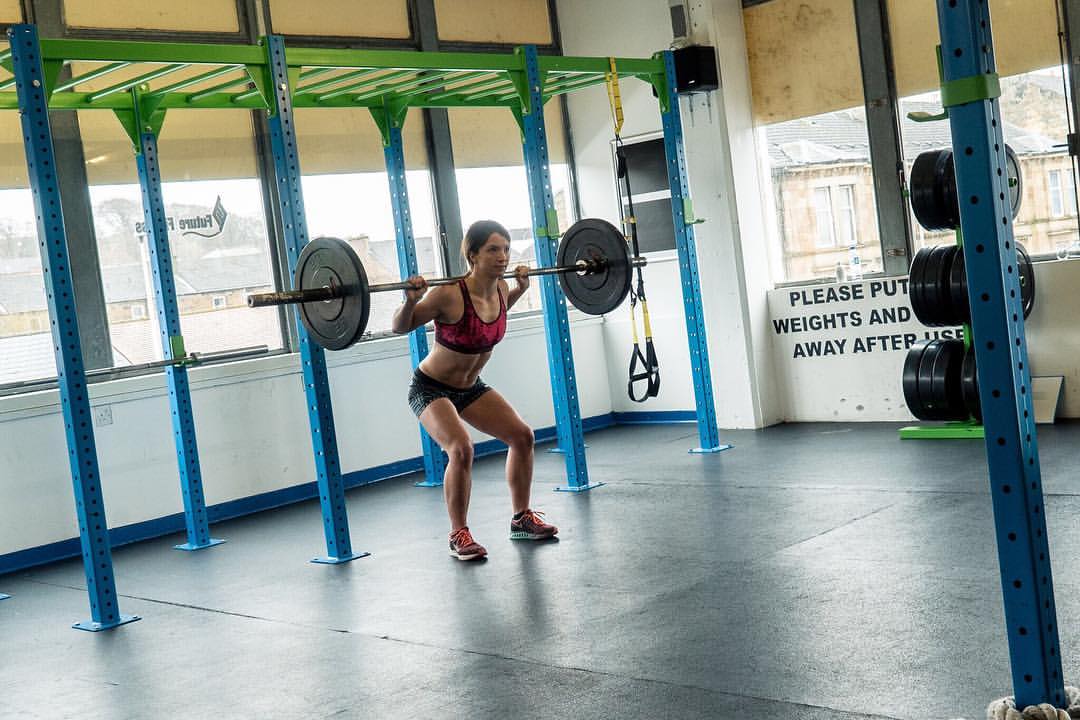I couldn't decide whether to write the next post about protein, or talk about something a bit more difficult... sustainability. This is especially difficult because the footprint I leave as an athlete is in many ways larger than average. But I have a few personal rules I follow, to make that footprint manageable.
The main issue for me is that people see sustainable living as something that has to be achieved to perfection, or not at all. The 'fuck it, the world's done anyway' response is cheap. If every person on the planet were imperfectly sustainable, rather than 1% being perfectly sustainable, we'd get where we need to go a lot faster. It isn't a lost cause.
Rule 1
You know when you pick something up at the supermarket, and the packaging is damaged? You put it back, have a rummage to find a good one, put it in the trolley. Boston Consulting Group (BCG) figured out that supermarkets are throwing away 1.6 billion tons of food a year. That's a third of global food.
That's a massive scale problem. Like, I can't even visualise what ten tons of food look like. But here's my rule: if you see a pack of 12 eggs, and one of the eggs is smashed, buy it anyway. The supermarket will throw away that whole box. That's 11 eggs wasted for one broken one. It's ridiculous; we'd waste 11 to feel as though we're getting value for money.
(By the way, if the membrane under the egg shell isn't broken, it's still good to go. Don't eat it if the skin is split as well.)
The same goes for broken packaging. I don't mean for meat; that's something you can decide by yourself. But if a tin is dented, a box corner crushed etc. Just buy it anyway. Wash it if it needs to be washed. Don't let it be part of the waste.
Rule 2
There's a massive rise in the number of restaurants and cafes opening around Europe that have 'closed ecosystems'. It's great; the food is sourced, produced, processed, served and disposed of locally. For example, Maaemo is a three Michelin star restaurant in Norway. Everything they serve is a product of local relationships they foster with tradespeople who have a sustainable ethic and dispose of their waste responsibly. That's a high profile example; there is a hotel restaurant in Grandtully, Scotland called Ballintaggart that grows and manages all of its produce locally. It's closed ecosystem because there is nothing in the cycle of production that gets pushed to another cycle to be dealt with.
My rule isn't to eat at places like this; I think there's about 2% of the population that could afford to do that. My rule is to endeavour to create your own closed ecosystem. Buy local stuff; we have a butcher down the road who knows every farmer he deals with by name. He knows exactly where everything comes from, and it's mostly small, local farms. They are much more likely to have a small ecological footprint than behemoths that produce chicken for supermarkets. Try and recycle/compost everything. If you can keep your impact local, we have a much better chance of managing the mass-production crisis of food. It doesn't need to be expensive.
Rule 3
Going completely plastic free, thanks to our capitalist system, is challenging. Again it feels like an impossible crisis to resolve when you're only offered the brutal facts. But it's another thing that you don't need to achieve perfectly. Plastic waste occurs in most industries, but the largest one by more than double is packaging. So as an individual, you can make quite a big impact by reducing the amount you waste yourself.
So it's worth thinking, when does plastic packaging come into your life and how necessary is it? Alternatives to plastic are increasingly available for food and drink. Buy a reusable cup, and keep it. Don't be lazy; just clean it, and carry it around with you. Use a lunch box instead of cling film. If there's an option for paper bags and boxes, use that instead. I'll talk a bit more about food prep in another post, but really it's a matter of effort. We're on the road a lot (another footprint for another blog) but even if the last thing you can be bothered doing is preparing food and putting it in a box, it's way healthier for you and the environment if you make a bit of effort and do it.
I think my most successful attempts at being plastic free are in the bathroom; I don't own a lot of makeup and my skincare routine is literally just cleanse, moisturise and sunblock. I only use shampoo and conditioner. So it's simple for me to use non-packaged products - I get everything from Lush UK, and without having any kind of affiliation with the brand at all I think it's the best condition my hair and skin has ever been in. It's more expensive than if you bought own-brand at the supermarket, but it lasts AGES as well.
We need to make a lot of changes. The biggest ones I've made in my life are adapting what I eat for minimal waste; use the whole thing, keep track of how long it's good for. It's cheaper, healthier and you're not throwing anything away. It's definitely not perfect, and there are so many more changes that need to happen. But it's a step in the right direction.
I think it's important I reference what I read to create the opinions I have:
https://www.ipcc.ch/sr15/ The latest IPCC report was last October, and it was grim. It's not an easy read, but it's important. Scroll to section B.4 onwards for some scary stats.
A New Green History of the World by Clive Ponting. How we began, why we're here, the choices we make now that reflect attitudes created thousands of years ago.
The main issue for me is that people see sustainable living as something that has to be achieved to perfection, or not at all. The 'fuck it, the world's done anyway' response is cheap. If every person on the planet were imperfectly sustainable, rather than 1% being perfectly sustainable, we'd get where we need to go a lot faster. It isn't a lost cause.
Rule 1
You know when you pick something up at the supermarket, and the packaging is damaged? You put it back, have a rummage to find a good one, put it in the trolley. Boston Consulting Group (BCG) figured out that supermarkets are throwing away 1.6 billion tons of food a year. That's a third of global food.
That's a massive scale problem. Like, I can't even visualise what ten tons of food look like. But here's my rule: if you see a pack of 12 eggs, and one of the eggs is smashed, buy it anyway. The supermarket will throw away that whole box. That's 11 eggs wasted for one broken one. It's ridiculous; we'd waste 11 to feel as though we're getting value for money.
(By the way, if the membrane under the egg shell isn't broken, it's still good to go. Don't eat it if the skin is split as well.)
The same goes for broken packaging. I don't mean for meat; that's something you can decide by yourself. But if a tin is dented, a box corner crushed etc. Just buy it anyway. Wash it if it needs to be washed. Don't let it be part of the waste.
Rule 2
There's a massive rise in the number of restaurants and cafes opening around Europe that have 'closed ecosystems'. It's great; the food is sourced, produced, processed, served and disposed of locally. For example, Maaemo is a three Michelin star restaurant in Norway. Everything they serve is a product of local relationships they foster with tradespeople who have a sustainable ethic and dispose of their waste responsibly. That's a high profile example; there is a hotel restaurant in Grandtully, Scotland called Ballintaggart that grows and manages all of its produce locally. It's closed ecosystem because there is nothing in the cycle of production that gets pushed to another cycle to be dealt with.
My rule isn't to eat at places like this; I think there's about 2% of the population that could afford to do that. My rule is to endeavour to create your own closed ecosystem. Buy local stuff; we have a butcher down the road who knows every farmer he deals with by name. He knows exactly where everything comes from, and it's mostly small, local farms. They are much more likely to have a small ecological footprint than behemoths that produce chicken for supermarkets. Try and recycle/compost everything. If you can keep your impact local, we have a much better chance of managing the mass-production crisis of food. It doesn't need to be expensive.
Rule 3
Going completely plastic free, thanks to our capitalist system, is challenging. Again it feels like an impossible crisis to resolve when you're only offered the brutal facts. But it's another thing that you don't need to achieve perfectly. Plastic waste occurs in most industries, but the largest one by more than double is packaging. So as an individual, you can make quite a big impact by reducing the amount you waste yourself.
So it's worth thinking, when does plastic packaging come into your life and how necessary is it? Alternatives to plastic are increasingly available for food and drink. Buy a reusable cup, and keep it. Don't be lazy; just clean it, and carry it around with you. Use a lunch box instead of cling film. If there's an option for paper bags and boxes, use that instead. I'll talk a bit more about food prep in another post, but really it's a matter of effort. We're on the road a lot (another footprint for another blog) but even if the last thing you can be bothered doing is preparing food and putting it in a box, it's way healthier for you and the environment if you make a bit of effort and do it.
I think my most successful attempts at being plastic free are in the bathroom; I don't own a lot of makeup and my skincare routine is literally just cleanse, moisturise and sunblock. I only use shampoo and conditioner. So it's simple for me to use non-packaged products - I get everything from Lush UK, and without having any kind of affiliation with the brand at all I think it's the best condition my hair and skin has ever been in. It's more expensive than if you bought own-brand at the supermarket, but it lasts AGES as well.
We need to make a lot of changes. The biggest ones I've made in my life are adapting what I eat for minimal waste; use the whole thing, keep track of how long it's good for. It's cheaper, healthier and you're not throwing anything away. It's definitely not perfect, and there are so many more changes that need to happen. But it's a step in the right direction.
I think it's important I reference what I read to create the opinions I have:
https://www.ipcc.ch/sr15/ The latest IPCC report was last October, and it was grim. It's not an easy read, but it's important. Scroll to section B.4 onwards for some scary stats.
A New Green History of the World by Clive Ponting. How we began, why we're here, the choices we make now that reflect attitudes created thousands of years ago.



